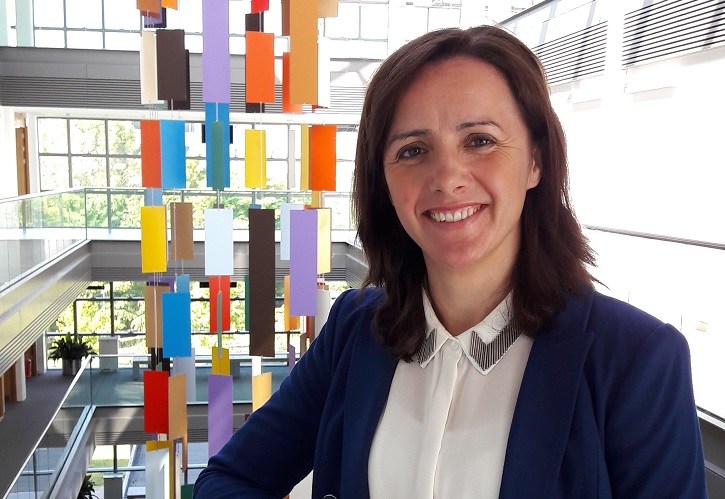- Home
- Research
- CoMH Research & Innovation eBulletin
- Research Workshops
- CoMH Research and Innovation Committee
- Inclusion Health Research Group (IHRG)
- Researcher Spotlight Series
- APC Microbiome Institute
- INFANT
- ASSERT
- Biosciences Imaging Centre
- Centre for Gerontology & Rehabilitation
- Centre for Research in Vascular Biology
- Cork NeuroScience Centre
- Cancer Research @UCC
- HRB Clinical Research Facility Cork
- National Perinatal Epidemiology Centre
- Oral Health Services Research Centre
- ENTO (Ear, Nose, Throat and Oral Research Unit)
- News
- People
- Programmes
- Hospital Partners
- Community Partners
- Jennings Gallery
- Graduate Studies
- Programmes for International (Non-EU) Students
- Interprofessional Learning (IPL)
- ASSERT
- iEd Hub
- Inaugural Professorial Lecture Series
- Philanthropic Lectures
- UCC Academic Health Sciences
- Continuing Professional Development
News
Study of schoolchildren soft drink consumption patterns suggests taxing sugar sweetened soft drinks could help fight obesity epidemic

A study of the soft drink consumption patterns of more than 1000 schoolchildren presented at this year’s European Congress on Obesity in Porto, Portugal (17-20 May) shows that overweight and obese children tend to drink more sugar sweetened soft drinks than normal weight children.
The authors, led by Dr Janas Harrington of University College Cork, Ireland, say that taxing such drinks in combination with other public health measures could help contribute to the fight against the child obesity epidemic.
The obesity epidemic is a public health crisis with the potential to reverse recent favourable trends in life expectancy and undermine the financial viability of health systems. Though the epidemic has many causes, links between the consumption of sugar-sweetened drinks (SSD) and excessive weight gain in children have been observed. Furthermore, excessive consumption is associated with increased prevalence of dental caries. In this new study, the authors aimed to provide evidence of the magnitude of the consumption of SSDs in Ireland and to explore the association between SSD consumption and overweight and obesity.
Data from 1075 schoolchildren aged 8-11 years was obtained the Cork Children’s Lifestyle Study (CCLaS), which was conducted in primary schools in Cork City, Ireland in 2012. In the study, which was funded by the National Children’s Research Centre, Crumlin, consumption of SSD was assessed from 3-day food diaries. Height (m) and weight (kg) were measured using standard methods. BMI was used to define obesity. The authors used data from children whose reported energy intake was within the normal range (referred to as ‘plausible energy reporters’) – a total of 724 children (67% of the sample).
The researchers found that18% of children with plausible energy intake were overweight (16%) or obese (2%) compared with 25% of the total sample. Of those with plausible energy intake, 82% were SSD consumers. Mean calories from SSDs increased incrementally between weight categories: SSD contributed 108 kcal for normal weight children and 155kcal for overweight/obese children, equating to 5.8%; and 7.6% respectively of total daily calories respectively.
Mean intake volumes were significantly higher in children who were overweight or obese compared to normal weight children. Average consumption volume was 383ml per day for overweight/obese children and 315ml per day for normal weight children. Adjusting for gender, parental education, physical activity and TV viewing, compared to low volume consumers (<200ml/d), high consumers (>200ml/d) were twice as likely to be overweight or obese. Furthermore, there was a clear trend of decreasing BMI with decreasing soft drink consumption.
Dr Harrington concludes: “While no single measure will reverse current trends in obesity, given the high level of consumption of SSD and the lack of nutritional value of these products, action needs to be taken to reduce consumption, particularly in high consumer groups, including children. There is a compelling case for the introduction of public policy to reduce SSD consumption in the population. The introduction of a tax on SSDs in combination with other public health interventions has the potential to have a measurable effect on the scale of the epidemic of childhood obesity.”
The Irish Government plans to introduce a tax on SSD in 2018. The next steps in this research will be to monitor consumption of these drinks in the run-up to the introduction of the tax, and to assess the impact of the tax following its introduction.
Dr Harrington adds: “It is unlikely that the introduction of the tax will have direct short-term impacts on obesity levels, but more likely that it will have more indirect impacts such as reduction in consumption of these beverages; increased consumption on non-sugar beverages such as water; product re-formulation by manufacturers; and changes in public attitudes and discourse. This will be a fascinating experiment in public health policy.”
